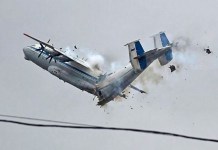North Korea is likely to continue to improve its nuclear arsenal, including conducting nuclear tests and trial flights of its intercontinental ballistic missiles (ICBMs), without facing serious consequences during US President Joe Biden’s four years in office, political analysts told Sputnik.
After testing two cruise missiles over the weekend, North Korea escalated its military provocations on Thursday by firing two short-range ballistic missiles into the sea off its east coast.
The latest missile tests from North Korea brought back memories of the rapid advancement of Pyongyang’s nuclear arms programs in 2017, when the nation successfully conducted both nuclear tests and ICBM tests while claiming to have obtained adequate nuclear capabilities.
Despite threatening to respond to Pyongyang’s military provocations with “fire and fury,” former US President Donald Trump held two summits with Kim Jong Un as part of his efforts to convince the young North Korean leader to give up his nuclear weapons.
But Trump’s efforts to rely on personal relationships with Kim, with whom he exchanged several letters, failed to resolve the nuclear crisis after he abruptly withdrew from the summit in Vietnam in February 2019, when he accused North Korea of not willing to fully denuclearize.
During his last two years in office, Trump did not make additional efforts on North Korea-related issues after the failed summit in Vietnam.
After taking office in January, Biden vowed to do a better job than his predecessor in resolving the nuclear crisis on the Korean Peninsula. But when Biden’s team reportedly reached out to North Korea in mid-February, Pyongyang did not respond to such back-channel diplomatic efforts.
US OUT OF OPTIONS
Instead of interpreting North Korea’s latest missile tests as calculated provocations against the United States, Pyongyang’s actions could be part of the country’s overall strategy to continue to improve its nuclear deterrence capabilities, political analysts argued.
“This is because North Korea has this kind of internal technological and security needs to ensure its nuclear deterrence capabilities are long-lasting, as the United States continues to improve its missile defense systems. It needs to continue to test such capabilities. This overall trend is important background,” Zhao Tong, a fellow in Nuclear Policy Program at the Carnegie–Tsinghua Center for Global Policy in Beijing, told Sputnik.
The expert suggested that it could not be ruled out that North Korea may continue to test more advanced missiles such as ICBMs or conduct further nuclear tests, which would be in violation of United Nations Sanctions introduced in 2017.
Even if North Korea tested more ICBMs that could threaten the mainland territories of the United States, the Biden administration would have very limited options to respond to such escalations, Zhao pointed out.
“The red line [on North Korea’s actions] has always been conducting ICBM tests or nuclear tests. Under previous conditions, there would always be new UN resolutions on sanctions [against Pyongyang]. But today, the chances for such UN resolutions to be passed have been greatly reduced,” he said.
Without further UN sanctions against North Korea, the Biden administration could always resort to unilateral US economic sanctions, South Korean political analysts suggested.
“I think the Biden administration is analyzing what kind of policy tools they could mobilize. One way is to introduce additional unilateral sanctions, not multilateral sanctions that have always been out of the question now,” Kim Jae-chun, an international relations professor at Sogang University in Seoul and a former South Korean government adviser, told Sputnik.
Zhao from Carnegie–Tsinghua Center argued that economic sanctions appeared to have had very little impact on North Korea’s determination to pursue its nuclear arms program.
“I believe North Korea’s domestic situation could be very difficult. Maybe serious humanitarian disasters have already happened. But for North Korean leaders, I think they have formed a strategy of holding onto their bottom line. Even if they don’t negotiate with the United States, they could still rely on friendly allies such as China or Russia.
Both of those countries’ relations with the United States have deteriorated significantly and they have a lot of room when implementing UN sanctions on North Korea,” he said.
GEOPOLITICS OVER REGIONAL SECURITY
When the UN Security Council passed the resolution on one of the most stringent economic sanctions against North Korea in 2017, both China and Russia voted in support of the decision.
However, as rivalry between China and the United States reached new heights in recent years, while relations between Moscow and Washington reached new lows after Biden took office, geopolitical dynamics began to play a much bigger role in efforts to resolve the nuclear crisis on the Korean Peninsula, Zhao suggested.
“As the strategic competition between China and the United States continued to intensify and bilateral hostility continued to worsen, more and more Chinese policymakers and scholars began to call on Chinese leaders to view issues related to North Korea from a point of view focused on geopolitical interests. Politically, Chinese leaders have set the tone for China’s relations with North Korea, which stressed friendship and mutual development. As both countries faced growing containment from the West, their common political consensus became stronger,” he said.
Zhao noted that Chinese President Xi Jinping exchanged messages with Kim Jong Un this week to reaffirm the alliance between the two countries.
Nevertheless, the Chinese scholar pointed out that prioritizing geopolitical interests could make China overlook the regional security implications of a nuclear-armed North Korea.
“The reality is that there have been growing interests from both South Korea and Japan to develop their own nuclear capabilities. Both countries felt a serious security impact from a nuclear North Korea. Maybe they will not openly develop their own nuclear capabilities.
But they could develop dual-use capabilities or work closely with the United States to obtain advance technologies on conventional weapons. Without a question, it would happen and it’s already happening. This kind of military progress is definitely very negative for China,” Zhao said.
Professor Kim from Sogang University noted that a number of former South Korean officials recently proposed that the country should adopt a nuclear-sharing program with the United States that is similar to what Washington does with its European allies through the North Atlantic Treaty Organization (NATO).
The South Korean expert pointed out that there were differing views within the Biden administration on this kind of proposal, as the US Department of Defense appeared to be in favor of such policies while the US State Department appeared to be more hesitant.
Zhao from Carnegie–Tsinghua Center added it would be unlikely for the Biden administration to approve such NATO-like nuclear sharing arrangements with South Korea or Japan, because of Biden’s overall preference for non-proliferation of nuclear weapons inherited from the Obama administration.
BAD POLICY VS WORSE POLICY
One of the key disagreements that led to the collapse of Trump’s summit with Kim Jong Un in Vietnam was North Korea’s demands that the United States should lift all economic sanctions in exchange for Pyongyang’s commitment to denuclearization.
Professor Kim from Sogang University suggested that it’s unlikely for the Biden administration to satisfy such demands from North Korea.
“For the Biden administration, when it comes to policies related to North Korea, it’s not really the choice between a good policy and a bad policy. It’s the choice between a bad policy and a worse policy. The worse policy is to meet North Korea’s demands. The bad policy is keeping those sanctions in place. There’s no other way around,” he said.
The expert believes there wouldn’t be any serious negotiations between North Korea and the United States during Biden’s four years in office.
He pointed out that the crisis on the Korean Peninsula did not appear to be Biden’s top foreign policy priority amid other pressing issues, such as growing rivalry with China, confrontations with Russia, the humanitarian crisis in Myanmar and the nuclear crisis related to Iran.




